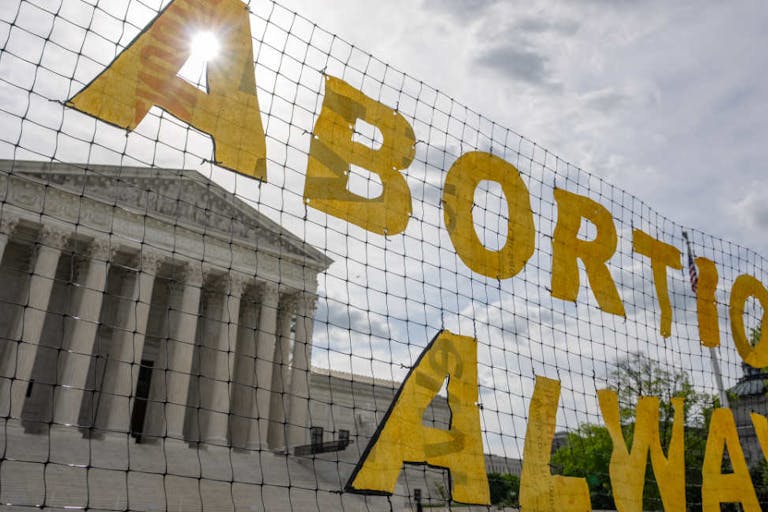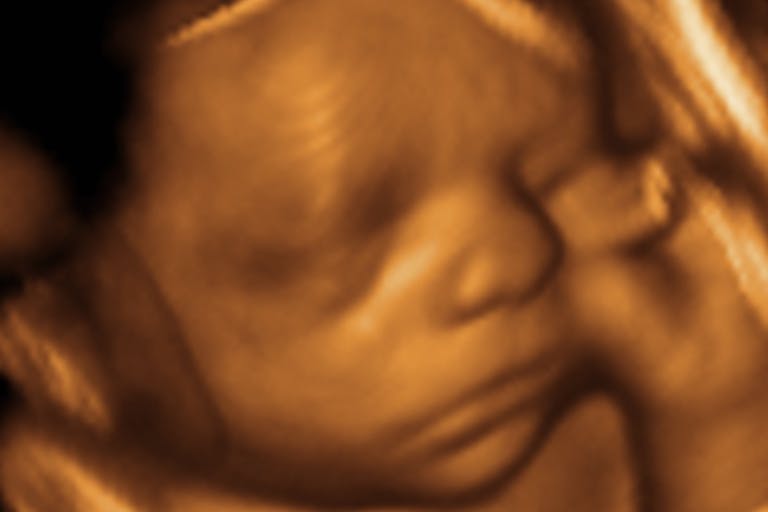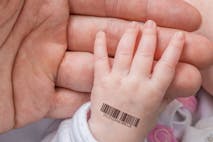
A growing number of Americans call themselves ‘pro-choice’ – but what’s really behind it?
Nancy Flanders
·
Coin toss abortion? Why our protracted national tolerance for abortion must end
I’ve been struggling for days trying to figure out how to write about Ruth Padawer’s article in the New York Times “The Two-Minus-One Pregnancy.”
What made it hard, I think, to start was my complete inability to grasp the moral universe where the people described in this article are coming from. Story after story of women who, having invested so much energy and money into getting pregnant in the first place, decide to kill off one of the twins they are carrying, supposedly so they can provide the surviving twin with a higher quality of life.
Welcome to the world Roe has created, I thought. A world where children simply do not matter. A world where the only thing that matters in the end is what adults want.
It’s probably too much to hope, but I can’t shake the desire to see in this story the beginning of the end of our protracted national tolerance for abortion.
Think about it — rewind the clock — can you imagine if Roe v. Wade had made abortion legal because one of the women described in this article desired to kill one of her unborn twins? Abortion was forced upon this country and made legal in all 50 states because of horror stories. Women who had been raped by their father. Women who would surely die in childbirth (their doctors testified) if they were made to carry the baby through until birth.
But these horror stories (and many of them were just that, stories) were not what Roe fixed. Roe gave us this: “coin toss” abortions, where one twin lives and one twin dies simply because one twin is closer to the abortionist’s needle.
This is another aspect of the world that Roe and legalized abortion-on-demand has given us: moral illiteracy. How else to describe journalists being able to write 5,000 words about Coin Toss abortions, complete with mentions of the “Mount Sinai Medical Center” and the “National Institute of Health” and never, not once, not even once, mention the one glaringly-obvious ethical question in the heart of the debate: “isn’t this murder?”
The author, who is careful to ignore (or maybe couldn’t even realize she was ignoring) this foundational question still manages to evoke the question as she describes the emotional trauma felt by some associated with this barbaric practice:
The doctors who do reductions sometimes sense their patients’ unease, and they work to assuage it. “I do spend quite a bit of time going through the medical risks of twins with them, because it takes away a little bit of the guilt they feel,” says Stone, the Mount Sinai doctor. Sometimes, she says, couples disagree about whether to reduce a twin pregnancy, and she encourages them to see a therapist so they can be at peace with whatever they decide.
Guilty? Therapy? Why would people harbor such feelings after undergoing a “reduction” surgery? Do people experience guilt and sadness after undergoing a stomach fat reduction? Something else entirely is happening here:
One of Stone’s patients, a New York woman, was certain that she wanted to reduce from twins to a singleton. Her husband yielded because she would be the one carrying the pregnancy and would stay at home to raise them. They came up with a compromise. “I asked not to see any of the ultrasounds,” he said. “I didn’t want to have that image, the image of two. I didn’t want to torture myself. And I didn’t go in for the procedure either, because less is more for me.” His wife was relieved that her husband remained in the waiting room; she, too, didn’t want to deal with his feelings.
Torture? Avoidance of dealing with feelings? How lost these people are!
“How do we help make these people less lost?” I wonder, and still struggle with. A part of me feels overwhelming sympathy towards these parents who are so blinded, so self-deluded in their choices. But another part of me is angry. So angry, because their choices — whether selfish, ignorant, or more likely, a combination of both — are killing children. Real children. Right now.
Imagine what will happen to these children, these siblings of aborted brothers and sisters, when they grow up. Most of the parents interviewed in this story say they intend to hide their choice to kill off one of their twins from their friends and family. Shame on them. Abortion has gone on for so long because the victim never has a chance to speak. These children who have survived the abortion of their twin (or twins) have a voice already – ours.
Let’s talk about the reasons given for Coin Toss abortions. The cop-out used by almost all the parents interviewed in this article is that they choose to kill one of their children to provide a better life for the surviving twin. They’ll be able to be better parents, they say, if they have to parent less children. There’s a word to describe this, and it refers to something found at the bottom of bull’s stall.
Because guess what? Life isn’t planned. And if these parents truly believed that the quality of life of their children was dependent purely on their ability to focus on them completely, then instead of daycare for their children they should do what the Romans did – leave them out in the forest to be eaten by wild animals. The only difference between infanticide, and abortion in these cases of “twin reduction”, is when the child is chosen to be killed, not why.
Pro-aborts always try to force pro-lifers to justify not allowing abortion in cases of rape and incest. As Rick Santorum recently demonstrated, pro-lifers have a beautiful response to this attack. The truth is on our side, even in hard cases.
It’s time for pro-lifers to turn the tables. We must force pro-abort zealots to defend twin reduction abortion. To defend Coin Toss abortion. This is what Roe has wrought. It’s time for them to own it. It’s time for us to own it. So that together as a nation, we can disown the destruction of innocent human life.
We can’t afford to let innocent life remain up to chance.
UPDATE: William Saletan at Slate gets so much right when he writes:
… the main problem with reduction [i.e., Coin Toss abortion] is that it breaches a wall at the center of pro-choice psychology. It exposes the equality between the offspring we raise and the offspring we abort.
… Reduction destroys this distinction [between wanted and unwanted babies]. It combines, in a single pregnancy, a wanted and an unwanted fetus. In the case of identical twins, even their genomes are indistinguishable. You can’t pretend that one is precious and the other is just tissue. You’re killing the same creature to which you’re dedicating your life.
… That’s the anguish of reduction: watching the fetus you spared become what its twin will never be. And knowing that the only difference between them was your will.
[Cross-posted at CatholicVote.org]
Live Action News is pro-life news and commentary from a pro-life perspective.
Contact editor@liveaction.org for questions, corrections, or if you are seeking permission to reprint any Live Action News content.
Guest Articles: To submit a guest article to Live Action News, email editor@liveaction.org with an attached Word document of 800-1000 words. Please also attach any photos relevant to your submission if applicable. If your submission is accepted for publication, you will be notified within three weeks. Guest articles are not compensated (see our Open License Agreement). Thank you for your interest in Live Action News!

Nancy Flanders
·
Opinion
Angeline Tan
·
Issues
Angeline Tan
·
Guest Column
Emily Berning
·
Opinion
Nancy Flanders
·
Opinion
Mark Wiltz
·
Analysis
Thomas Peters
·
Politics
Thomas Peters
·
Opinion
Thomas Peters
·
Issues
Thomas Peters
·
Issues
Thomas Peters
·